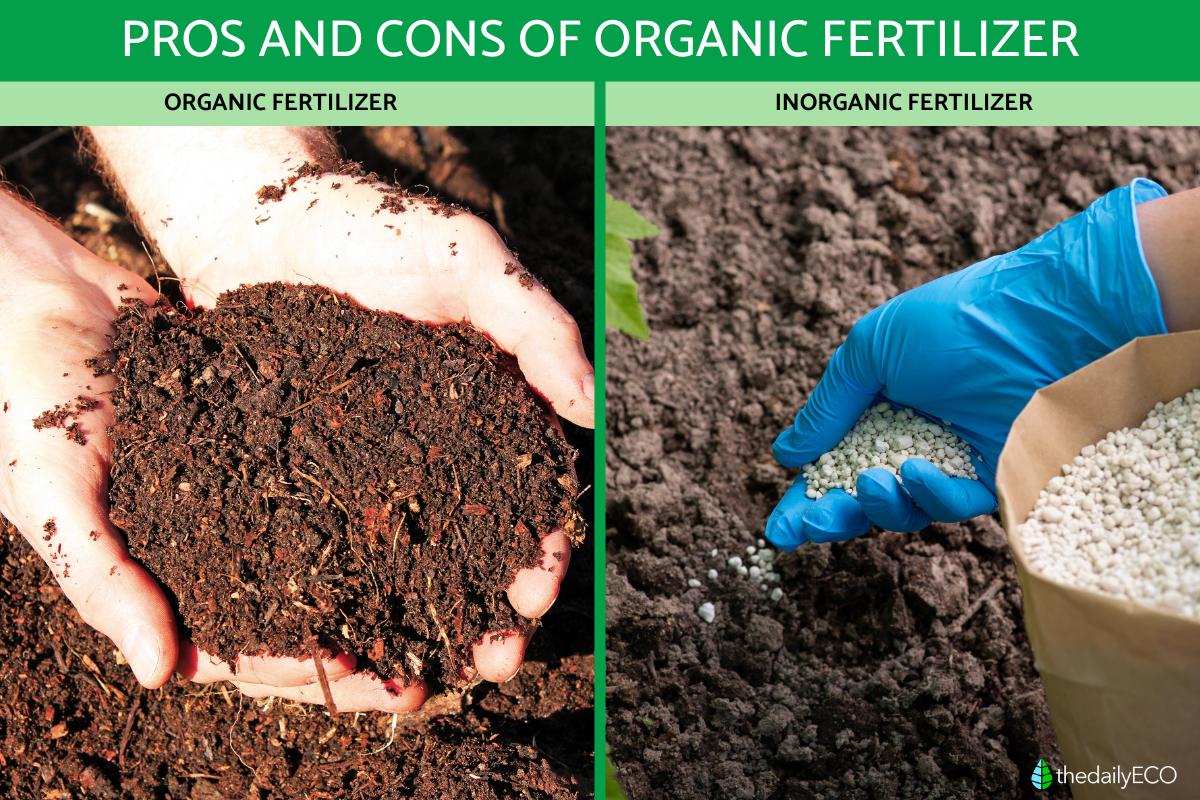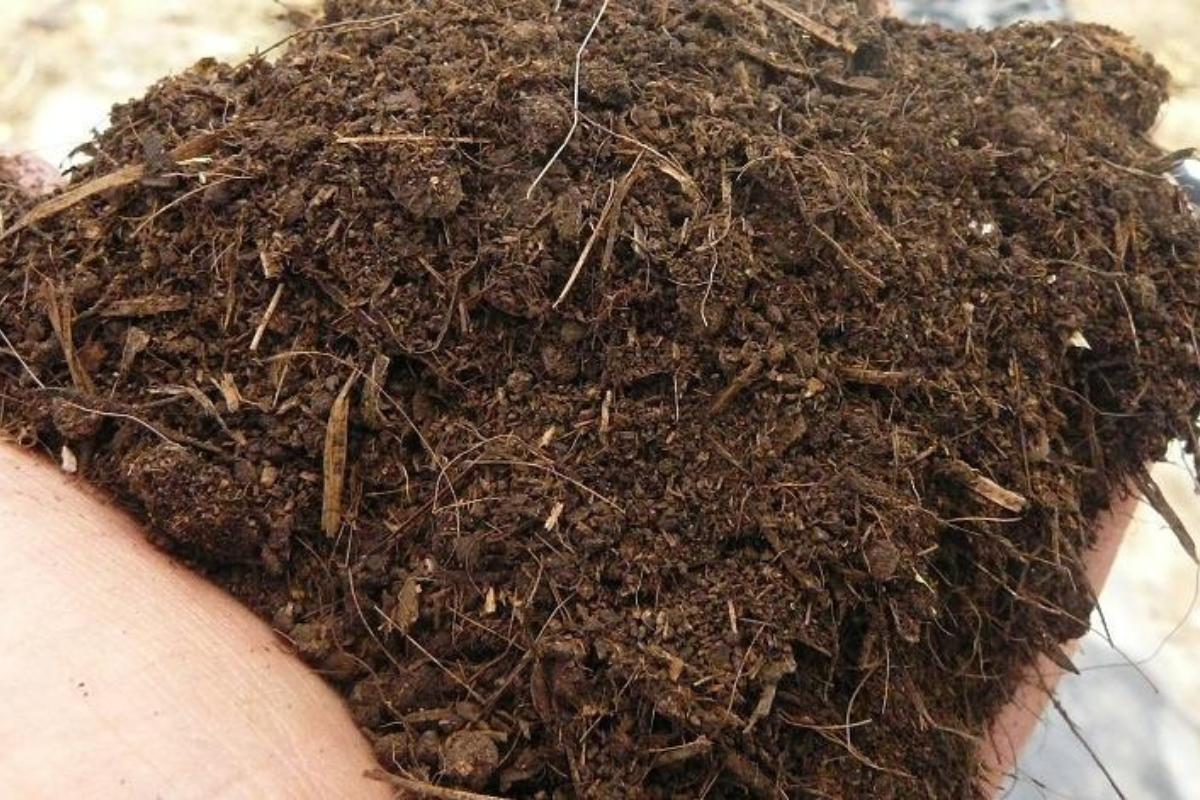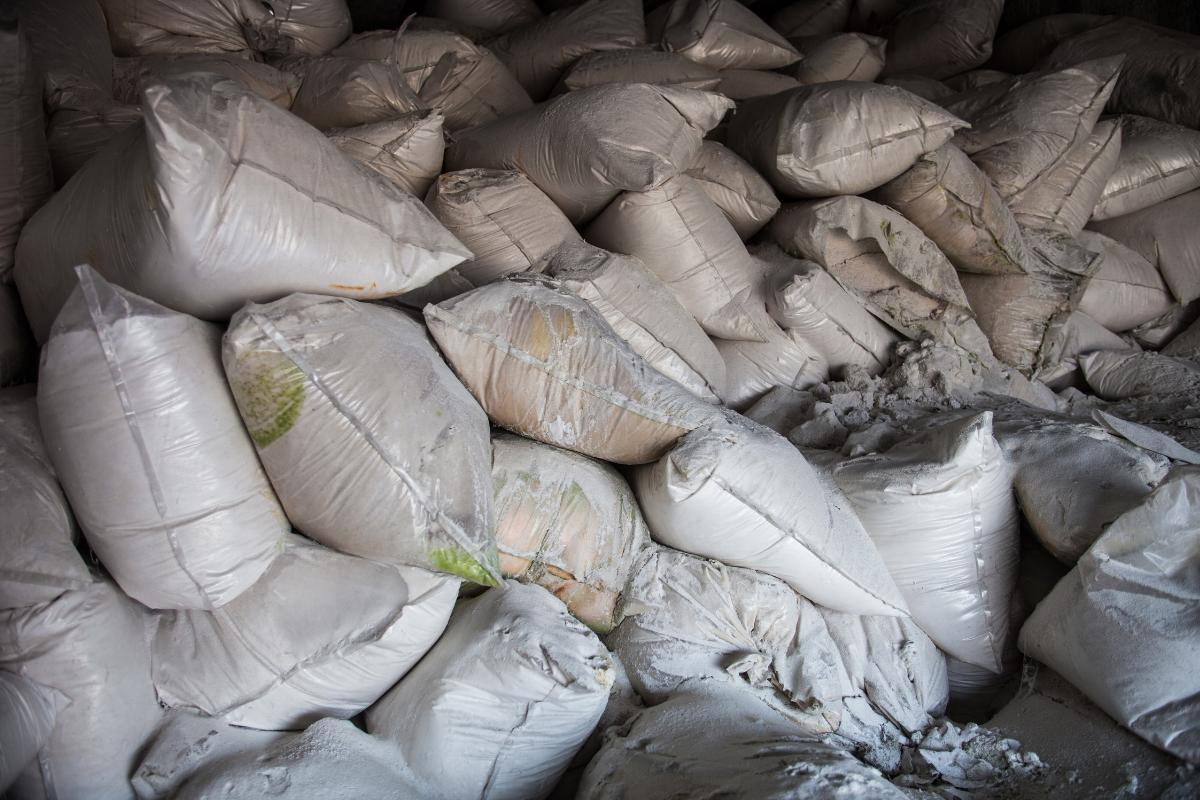Disadvantages of Organic Fertilizers


Organic fertilizers are a choice that both many home gardeners and industrial agricultural business are making. The reasons behind this movement toward organic vs. inorganic fertilizers has a lot to do with sustainability. Synthetic fertilizers are often cheaper and very effective when used in farming. However, they also cause a level of environmental impact which can harm the land for a long time to come. At thedailyECO, we exist to help encourage sustainable practices on both personal and industrial levels. This doesn't mean the path to a sustainable future is a straight one. Learn more with our article looking at the disadvantages of organic fertilizers.
What are organic fertilizers?
Also known as natural fertilizer, organic fertilizers are natural materials added to the soil to promote growth. They do so by releasing nutrients into the soil which are then absorbed by the plants, usually via their roots. They also help to ensure the overall health of the plant. They exist in comparison to inorganic or synthetic fertilizers.
Organic fertilizers use natural ingredients to provide benefit to the soil and promote plant growth. In this way, they mimic the processes of nature which decomposes dead organic material to allow for other growth to occur. Synthetic fertilizers use chemicals which have been manmade to mimic these natural processes.
There are three main types of organic fertilizer:
- Plant-based organic fertilizer: this is made from decomposing plant matter which can come from many sources. At home, we can use leftover vegetable peelings and other scraps. In industrial farming, leftover plant matter from growing crops is used.
- Animal-based organic fertilizer: in these cases, products derived from animal matter are used. This is most often found in manure, but bones, blood and other material can be used.
- Mineral-based organic fertilizer: instead of adding layers of decomposed organic matter, pure minerals and nutrients are added directly to the soil to act as fertilizer.
Although organic fertilizers have many advantages and can help to protect soil from different forms of environmental degradation, it is not always the perfect solution. For this reason, we can look at some of the disadvantages of organic fertilizer:
Limited nutrients
When making organic fertilizer, it is difficult to always determine the nutrient content. With inorganic fertilizers, they are specially designed to contain certain levels of specific nutrients. They are more easily controlled and can have more nutrients in less material. This means we may need to use larger quantities of the organic fertilizer to generate the nutrient content certain crops need in the soil.
If the soil is in need of nutrients, it can be more difficult to create the biological conditions necessary for crop growth. Plants that are deprived of nutrients will need a boost to grow a certain yield.

Slow nutrient release
While it will depend on the type of organic or inorganic fertilizer, organic fertilizers usually have a slower release of nutrients. This is because it is a natural process which is not sped up artificially as can happen with synthetic fertilizers. Fast-growing crops may need more nutrients in a shorter space of time, especially if they are hybridized or genetically modified for faster growth.
Farming requires careful planning of seed sowing, crop development and harvesting. If the fertilizer we use has a slower nutrient release, it can make this planning more difficult and result in problems for farmers wishing to sell their product on the market.
Learn what is organic waste to see how this can be a problem.
Labor intensive
It is true that organic fertilizers are great for the soil, but they require a lot of time and dedication to act according to our needs. It also takes a lot more space to create it. Whether in the form of plant-based or animal-based organic fertilizer, its creation requires a lot of infrastructure.
On a home gardening scale, making fertilizer is not something suitable for everyone. It requires decomposing elements which can pose hygiene risks. These include attracting insects, promoting bacterial growth and even simply having a strong odor.
Potentially pathogenic
Incomplete or poorly created organic fertilizer or compost can leave certain types of pathogens in the organic matter. These pathogens can enter water or food crops, putting your family's health in danger if we used them in the home. On an industrial scale, it can result in pollution of nearby water sources which can spread very serious diseases. Preventing these pathogenic releases is also a more intensive process than with inorganic fertilizer.
Organic fertilizer can help agricultural crops grow, but they can also promote the growth of unwanted plants such as weeds. Weed seeds can proliferate in organic fertilizer and damage crops when used.
Learn more about the difference between fertilizer and compost with our related guide.
They're more expensive
Generally speaking, the labor-intensive nature of organic fertilizer means they are more expensive to create and source. The large amount of material used to create it means transport and storage costs can be high. We also may need certain amounts of a specific nutrient. Creating a fertilizer with the amounts we need can be expensive when using only organic methods. Synthetic fertilizers can provide these amounts we need without these costly processes.

Pros and cons of organic fertilizers
While it is important to share the disadvantages of organic fertilizers, this does not mean they should not be used. In fact, a movement towards the use of organic fertilizers may be necessary if we want to have land to farm in the future. We help explain why this is by looking at the advantages of organic fertilizers:
- Environmental benefits: the benefits of organic fertilizers also exist in juxtaposition with the use of synthetic fertilizers. Since inorganic fertilizers use chemicals to promote growth, they can pollute the environment. This is often in the form of chemical runoff which enters water suppliers such as different types of aquifers. These chemicals are not only harmful, but they biodegrade slowly and can produce long-term damage.
- Soil health: the use of organic fertilizers can help to protect soils from the damage caused by synthetic products. As they are made from organic matter, the soil responds to them better. Organic fertilizer also helps to promote aeration as well as water and nutrient retention in the soil. Inorganic fertilizer can boost nutrient retention in the short term, but make it worse over time. It also helps to maintain soil pH.
- Slow nutrient release: this disadvantage of organic fertilizers can also work to our advantage. Sometimes crops need a slow release which will help a plant to develop over its growth season without bombarding it with nutrients at the beginning. This means the nutrient supply is sustained, something which can be very useful.
- Sustainability: organic fertilizer is a sustainable product which is renewable. Instead of chemically boosting the soil, it becomes part of the soil and helps to regenerate itself. There are also many components of organic fertilizers which are waste products from other industries. This means we can use this material which would otherwise go to waste and harm the environment in doing so.
- Safety benefits: organic fertilizers are generally safer from a public health point of view. Not only do they help protect the arable and pastoral land used in agriculture, they have a lesser risk of poisoning than synthetic fertilizers. This will depend on the type of inorganic fertilizer and the quality of the organic fertilizer, but they have a lesser risk of poisoning the plants which we use and consume.
We have shared the general pros and cons of inorganic fertilizers and organic fertilizers. However, there is no simple answer as to which one is better. This is partly because both vary in quality. For instance, it may be better to use a high-quality synthetic fertilizer than a low-quality organic fertilizer. Also, just because a fertilizer is synthetic, doesn't mean it is necessarily a pollutant or bad for the environment.
For this reason, we need to encourage the use of organic fertilizers where possible. However, we also need to be open to the use of synthetic fertilizers which can also help with issues such as soil health and sustainability.
If you decide to use organic fertilizers at home, you can check out our related guide to see the best homemade organic fertilizers for your garden.
If you want to read similar articles to Disadvantages of Organic Fertilizers, we recommend you visit our Sustainability and sustainable development category.







